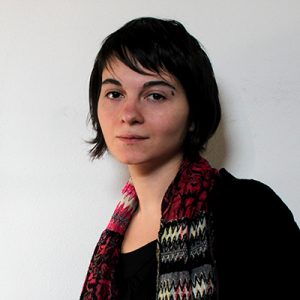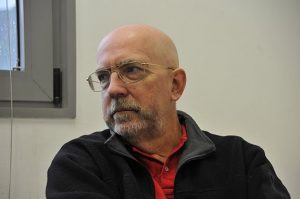Christian Cachin, IBM
Secure distributed programming for blockchains
Abstract: This course will explain how to build secure distributed applications,  drawing on cryptographic tools and protocols from distributed computing. Topics include:
drawing on cryptographic tools and protocols from distributed computing. Topics include:
- Randomized (Byzantine) consensus
- Distributed cryptography
- Blockchain consensus protocols
- Consortium blockchains and Hyperledger Fabric
About the speaker: Christian Cachin is a cryptographer and computer scientist interested in distributed computing, cryptographic protocols, and security, working at IBM Research – Zurich. He graduated with a Ph.D. in Computer Science from ETH Zurich and has held visiting positions at MIT and at EPFL. An IEEE Fellow, ACM Distinguished Scientist, and recipient of multiple IBM Outstanding Technical Achievement Awards, he has co-authored a textbook on distributed computing titled “Introduction to Reliable and Secure Distributed Programming”. Currently he serves as the President of the International Association for Cryptologic Research (IACR). In addition to many cryptographic protocols that he has developed, particularly for achieving consensus and for executing distributed cryptographic operations over the Internet, he has also contributed to standards in storage security and key management. His current research addresses blockchains, the security of cloud computing, secure protocols for distributed systems, and cryptography.
Primavera De Filippi, CNRS and Harvard
 Social and legal effects of distributed trust systems
Social and legal effects of distributed trust systems
Abstract: This course will look at the legal implications of decentralized blockchain-based applications, as well as the social and political implications of disintermediation and decentralization. Topics include:
- Legal aspects of blockchain technology, cryptocurrencies and blockchain-based tokens/ICO
- Blockchain governance, Decentralized organizations and peer-to-peer coordination
- Blockchain technology for identity and privacy: challenges and opportunities
- Ethical and policy implications of blockchain-based applications
About the speaker: Primavera De Filippi is a permanent researcher at the National Center of Scientific Research (CNRS) in Paris. She is faculty associate at the Berkman Center for Internet & Society at Harvard Law School, where she is investigating the concept of “governance-by-design” as it relates to online distributed architectures. Most of her research focuses on the legal challenges raised, and faced by emergent decentralized technologies —such as Bitcoin, Ethereum and other blockchain-based applications —and how these technologies could be used to design new governance models capable of supporting large-scale decentralized collaboration and more participatory decision-making.
Maurice Herlihy, Brown University:
Blockchains, Smart Contracts, and the future of distributed computing

Abstract: This course will explore how to use blockchains to build distributed systems. Topics include:
- Permissioned vs Unpermissioned Blockchains
- Smart Contracts, atomic swaps, and similar challenges
- Surveys of some recent blockchain-related security disasters
- Non-currency applications of blockchains
About the speaker: Maurice Herlihy has an A.B. in Mathematics from Harvard University, and a Ph.D. in Computer Science from M.I.T. He has served on the faculty of Carnegie Mellon University and the staff of DEC Cambridge Research Lab. He is the recipient of the 2003 Dijkstra Prize in Distributed Computing, the 2004 Gödel Prize in theoretical computer science, the 2008 ISCA influential paper award, the 2012 Edsger W. Dijkstra Prize, and the 2013 Wallace McDowell award. He received a 2012 Fulbright Distinguished Chair in the Natural Sciences and Engineering Lecturing Fellowship, and he is fellow of the ACM, a fellow of the National Academy of Inventors, the National Academy of Engineering, and the National Academy of Arts and Sciences.
Christoph Jentzsch, Slock.it
Blockchains, Ethereum, Solidity, and Smart Contract Security
- Lecture 1: Title: “Blockchain basics”; Abstract: “important definitions for concepts such as: p2p network, Hash algorithm, Merkle Tree, Public/Private keys will be given. With those definitions, a short precise definition of a blockchain will be given.”
- Lecture 2: Title: “Ethereum basics”; Abstract: “A summary of the yellow paper (technical specification of Ethereum) will be given.”
- Lecture 3: Title: “Solidity basics”; Abstract: “Introduction into the smart contract language Solidity.”
- Lecture 4: Title: “Smart Contract Security”; Abstract: “Pitfalls and common mistakes in smart contract development will be discussed.”
About the speaker: Christoph’s background is in theoretical physics, where he developed optimized software solutions for high performance computing on specialized hardware. Christoph has been part of the Ethereum project since 2014 as Lead Tester, securing and shaping the core protocol while working on the backend of the C++ client.
Bertrand Meyer, Politecnico di Milano, Innopolis University and Eiffel Software:
Fun with Class invariants
Abstract: In my lectures I will present class invariants, explaining their importance in general programming and in particular hinting at how they can be useful in the context of blockchains to build distributed systems.
About the speaker: Bertrand Meyer is Professor of Software Engineering at Politecnico di Milano (previously at ETH Zurich) and the author of numerous papers and books on various aspects of software engineering.
Emin Gun Sirer, Cornell University
High Performance Blockchain Infrastructure
About the speaker: Emin Gün Sirer is an Associate Professor of Computer Science at Cornell University. His research interests span distributed systems, cryptocurrencies, and software infrastructure for large scale services.
Roger Wattenhofer, ETH Zurich
Consensus

List of topics that will be discussed: Fault Tolerance, Paxos, Consensus, Impossibility Results, Randomized Protocols, Shared Coin, Byzantine Agreement, Cryptographic Protocols, PBFT, Zyzzyva, Eventual Consistency, Bitcoin, Ethereum, Scalability, Throughput, Energy Consumption, Payment Networks, Hashed Timelock Contracts, Duplex Micropayment Channels, Lightning.
About the speaker: Roger Wattenhofer is a full professor at the Information Technology and Electrical Engineering Department, ETH Zurich, Switzerland. He received his doctorate in Computer Science in 1998 from ETH Zurich. From 1999 to 2001 he was in the USA, first at Brown University in Providence, RI, then at Microsoft Research in Redmond, WA. He then returned to ETH Zurich, originally as an assistant professor at the Computer Science Department.
Roger Wattenhofer’s research interests are a variety of algorithmic and systems aspects in computer science and information technology, e.g., distributed systems, positioning systems, wireless networks, mobile systems, social networks. He publishes in different communities: distributed computing (e.g., PODC, SPAA, DISC), networking (e.g., SIGCOMM, MobiCom, SenSys), or theory (e.g., STOC, FOCS, SODA, ICALP). He recently published the book “Distributed Ledger Technology: The Science of the Blockchain“.
From the cloud-based Internet of Things to the Economy of Things
Abstract: The Internet has evolved through different phases. The current phase is dominated by cloud computing and the digitization of the physical world. The cloud computing paradigm has enabled many innovations but inherent issues are becoming apparent. Bitcoin and Distributed Ledger Technologies may be the beginning of a new phase of the Internet, characterized by shared infrastructure and rational cryptographic protocols. I’ll discuss how the current software stack could be extended with economic layers and present early applications and examples of the emerging Economy of Things.
About the speaker: Dominic Wörner is Solution Architect for IoT and Blockchain Technologies at Bosch.
More titles, abstracts and details will be added in the coming weeks.